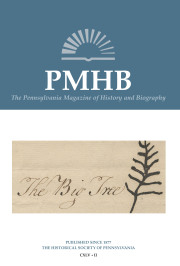Abstract
In 1797, Benjamin Rush sued William Cobbett for libel. Rush’s decision to address in the courtroom the biting criticism “Porcupine” had leveled at “Sangrado” during the 1797 yellow fever epidemic was a highly risky strategy that ultimately proved a pyrrhic victory for the doctor. In 1798, the Alien and Sedition Acts made it possible for Rush’s Republican legal team to turn the tables on the Federalists by using their law to punish one of their own journalists. Linda Myrsiades “anatomizes” the Rush-Cobbett trial of 1799 as a case study that captures the interrelationship among early party politics, the medical marketplace, debates over freedom of the press, and an emerging uniquely American jurisprudence (3). By contextualizing a rare, published trial transcript, Myrsiades offers a highly compelling reading of Rush v. Cobbett as a “crucible for testing critical issues of the times” that explores the mutually constituting narratives of medicine and politics, fever and religion, individual and nation.
